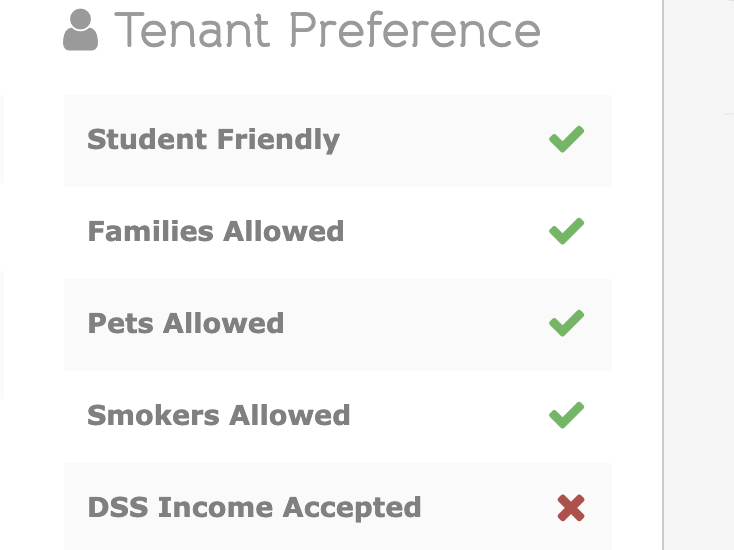Landlords still refusing to let to benefits claimants, despite court ban on discrimination
Listings website must remind property owners of ‘legal duty not to discriminate,’ warns Shelter
Your support helps us to tell the story
From reproductive rights to climate change to Big Tech, The Independent is on the ground when the story is developing. Whether it's investigating the financials of Elon Musk's pro-Trump PAC or producing our latest documentary, 'The A Word', which shines a light on the American women fighting for reproductive rights, we know how important it is to parse out the facts from the messaging.
At such a critical moment in US history, we need reporters on the ground. Your donation allows us to keep sending journalists to speak to both sides of the story.
The Independent is trusted by Americans across the entire political spectrum. And unlike many other quality news outlets, we choose not to lock Americans out of our reporting and analysis with paywalls. We believe quality journalism should be available to everyone, paid for by those who can afford it.
Your support makes all the difference.Thousands of landlords in the UK are still attempting to stop benefit claimants renting out their properties – despite a recent court ruling which found banning them unlawful.
At a landmark county court hearing last month, a judge ruled that an attempt to prevent a woman in receipt of housing benefit from renting a house in York was in breach of the Equality Act 2010.
However, around 75 per cent of the listings on the popular landlords’ website OpenRent still feature “no DSS” conditions, according to BBC analysis of 9,000 entries.
The notorious “no DSS” phrases – which refers to the now-defunct Department of Social Security – has long been used to indicate owners won’t let to people on state benefits.
Polly Neate, chief executive of housing charity Shelter, said: “OpenRent should ban landlords from advertising their properties as ‘DSS not accepted’ – and remind them of their legal duty not to discriminate.”
She added: “We won’t stop fighting DSS discrimination until it’s banished for good.”
OpenRent said its policy remained that “applicants should be made aware upfront of any conditions of renting a property”.
Website founder Adam Hyslop said some property owners had mortgage conditions which prevented them letting to benefit claimants.
“We’re committed to solving root causes like these, however in the meantime our customers are overwhelmingly telling us we should not be pretending the problem doesn’t exist,” Mr Hyslop told the broadcaster.
“Hiding conditions of renting over which the landlord has no discretion only wastes time for all involved, and indeed makes the situation far worse for the very people Shelter is trying to help.”

In April this year property website Rightmove joined competitor Zoopla in banning “no DSS” from all its rental listings. Rightmove told its agents they “should not impose blanket bans on tenants on housing benefit”.
The company also pointed out that several mortgage lenders had revised terms and conditions to make sure there was no restriction on letting to people on benefits.
In July, York County Court’s district judge Victoria Elizabeth Mark declared for the first time that “rejecting tenancy applications because the applicant is in receipt of housing benefit was unlawfully indirectly discriminatory on the grounds of sex and disability, contrary to […] the Equality Act 2010.”
The case related to a single mother with two children, who had become homeless, who was refused access to a two-bedroom house in York by a letting agency because she received housing benefit.
Join our commenting forum
Join thought-provoking conversations, follow other Independent readers and see their replies
Comments